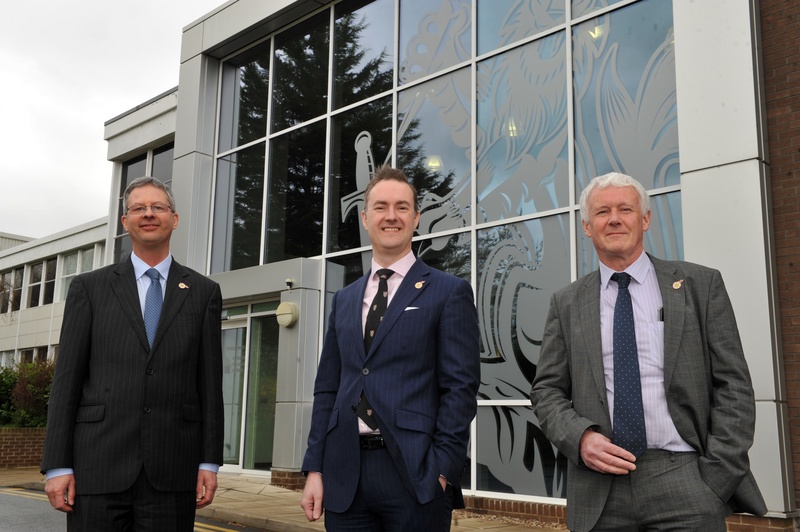Materials Processing Institute
Materials Processing Institute to contribute expertise to United Nations decarbonisation initiative
Three senior figures from the Materials Processing Institute have been invited to contribute to a United Nations Industrial Development Organisation (UNIDO) initiative to decarbonise heavy industry.
Since launching its Industrial Deep Decarbonisation Initiative (IDDI) at the 12th Clean Energy Ministerial in June 2021, and it being announced at the COP26 climate conference, it has established three technical working groups to progress policy designed to create demand for low-carbon materials, including steel and concrete.
IDDI is a coalition of public and private organisations co-ordinated by UNIDO and led by the governments of the United Kingdom and India, with current members including Germany, Canada, and United Arab Emirates.
These countries have already signalled their intention to buy low-carbon steel and concrete and the IDDI is seeking to align government action to create markets for low-carbon industrial products by establishing public and private sector procurement targets, incentivising investment in low-carbon product development, and revising industry guidelines.
The UK-based Materials Processing Institute was selected to take part as it is at the forefront of research and development to decarbonise the foundation industries, including steel and cement.
In 2020, the Institute was awarded the PRISM research and innovation programme with funding provided through Innovate UK, part of UK Research and Innovation. This five-year programme supports innovation in decarbonisation, digital technologies, and the circular economy within the steel and metals sector.
In addition, the not-for-profit organisation is also involved in a wide range of research programmes focused on minimising the use and extending the life of materials, promoting the circular economy, and reducing waste, emissions, and energy leakage.
Chris McDonald, the Institute’s Chief Executive, will sit on the Low-Carbon Standards Advisory Group, which supports the development of material-specific standards or guidelines for measuring the life cycle of greenhouse gas emissions of steel, cement, and concrete.
Dr Gerard Stephens, Director of Operations, joins the Green Public Procurement Advisory Group, which aims to agree a joint approach to measuring and reducing embodied carbon in concrete and steel in public construction projects, while Chief Technology Officer, Alan Scholes, will advise the Data and Reporting Advisory Group, which will draw up guidelines for data collection and green public procurement reporting frameworks.
All are serving on a voluntary basis for the extent of the initiative.
Chris McDonald said: “The Materials Processing Institute is already a globally-recognised centre for research and development into the commercialisation of the technology that can deliver industrial decarbonisation.
“It is a measure of the knowledge and expertise available at the Institute, that it has been invited to contribute to each of the IDDI’s three advisory groups and we are all honoured to take part.
“This initiative is a great example of countries and organisations coming together under UNIDO to ensure that governments can use their purchasing power to stimulate the market for green steel and concrete.”
Current methods of production mean steel and cement are among the most carbon-intensive industrial materials on the planet accounting for between 14 and 16 percent of global energy-related CO2 emissions.
ENDS
ISSUED ON BEHALF OF MATERIALS PROCESSING INSTITUTE
MEDIA CONTACT: Andrew Douglas 01325 363 436
Photo caption: UN advisors (L-R):Gerard Stephens, Director Operations; Chris McDonald, Chief Executive Officer and Alan Scholes, Chief Technology Officer
Notes to editors:
Materials Processing Institute
The Materials Processing Institute is a research and innovation centre serving global steel and materials organisations that work in advanced materials, industrial decarbonisation, the circular economy, and digital technologies.
The Institute has served as the UK’s national steel innovation centre since 1944 having been set up by Sir Winston Churchill’s wartime government just before D-Day to equip the British steel industry for post-war reconstruction. It will celebrate its 80th anniversary in 2024.
Through collaboration with its customers, the Institute provides a range of technology and R&D based services and consultancy. It also has pilot and demonstration facilities and an SME Technology Centre to support supply chain businesses with the development of new technologies and products.
Works with: steel, metals and alloys, chemical processes, aerospace and defence, energy, mining and quarrying, construction, rail, transport, and infrastructure, offshore, subsea, and nuclear.
The Materials Processing Institute includes developments funded through Tees Valley Combined Authority, through the Local Growth Fund (Growth Deal).
About IDDI
The Industrial Decarbonization Initiative (IDDI) is one of the largest and most diverse coalitions focusing on rallying governments and the private sector to help create a transparent and equitable global market for low-carbon industrial materials, starting with steel and cement.
About CEM
The Clean Energy Ministerial (CEM) brings together a community of the world’s largest and leading countries, companies, and international experts to achieve one mission – accelerate clean energy transitions. The CEM is an international clean energy leadership platform, a convening platform, an action platform, and an acceleration platform.
back to Materials Processing Institute
Images

